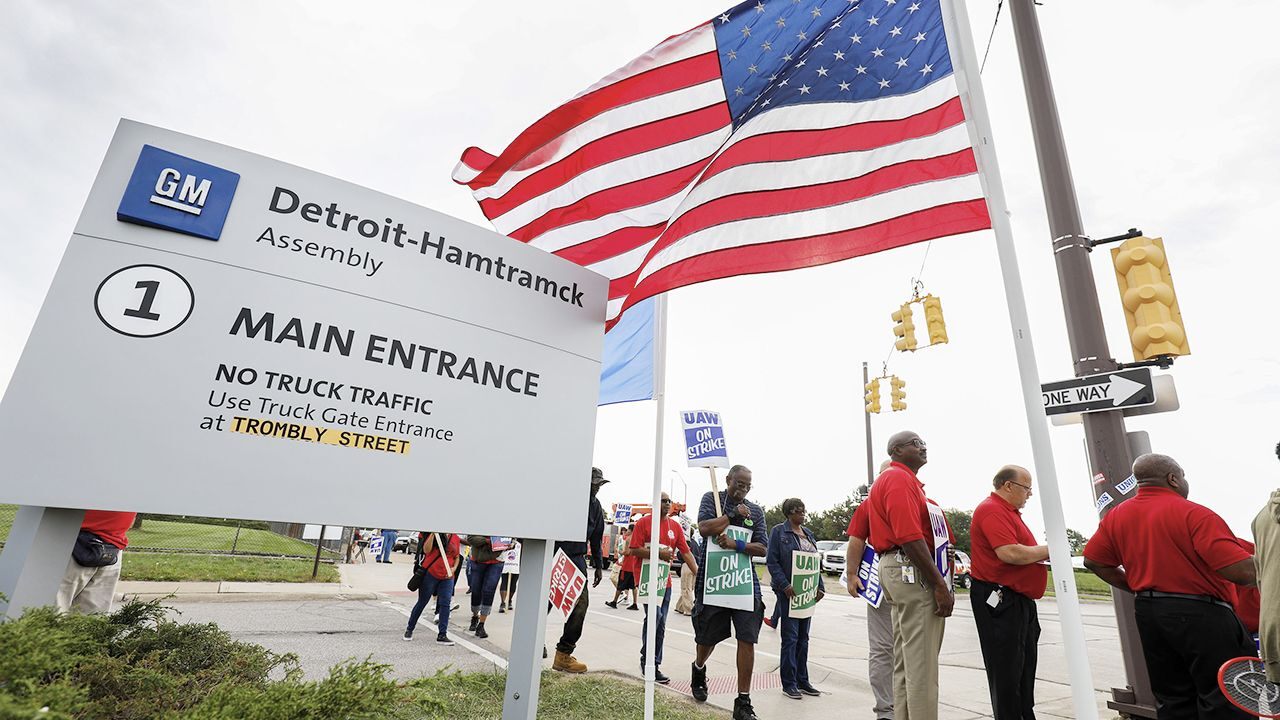
Detroit Free Press Sr. Content Editor Randy Essex discusses the current status and repurcussions of the GM UAW strike.
Striking General Motors employees and the iconic automaker itself are losing hundreds of millions of dollars as a walkoff over pay and health benefits enters its third week.
Continue Reading Below
With no clear end in sight, the prolonged negotiations to reach a new labor agreement with 50,000 members of the United Auto Workers have paralyzed production at about 30 manufacturing sites in nine states. As of Sept. 26, GM lost profits of $113 million as plants shuttered or ran on a thin workforce, according to a report from the Anderson Economic Group.
UAW workers, auto parts suppliers and small businesses that provide products and services to GM have relinquished $266 million in direct earnings, according to the report. That translates to nearly $70 million in lost federal income and payroll taxes.
The fallout is likely to grow as the strike’s effects ripple through the American auto-manufacturing supply chain.
“We estimate that GM is now facing $25 million per day in lost profit,” Anderson Economic Group CEO Patrick Anderson said in a statement, “and we expect that daily loss figure will continue growing as long as the strike continues.”
Karlton Byas, a veteran safety trainer at General Motors’ Hamtramck Assembly Plant in Detroit, told the Detroit Free Press that he is among the numerous strikers who have come face to face with a no-paycheck reality.
“We haven’t received anything, so I’m getting by on past savings,” Byas told the publication.
The 63-year-old said he has stopped dining out, postponed any planned trips and turned off his air conditioner.
“We’re not cutting the heat on,” either, he added. “We’re eating out of the freezer now.”
Neither GM nor the United Auto Workers immediately returned a request for comment from FOX Business.
CLICK HERE TO READ MORE ON FOX BUSINESS
“The cost of a strike, to both workers and the company, grows steadily in the first week, and then pyramids out into the surrounding economy,” said Brian Peterson, Anderson’s director of public policy and economic analysis. “As we move closer to two full weeks of a strike,” he continued, “the effect on the economies of Michigan, Indiana, Ohio, and Ontario has become acute, with both union and non-union workers suffering significant income losses. Even if the strike ends today, those losses will still be felt.”
The union wants a bigger share of GM’s more than $30 billion in profits during the past five years. But the company sees a global auto sales decline looming and wants to bring its labor costs in line with the lower expenses of U.S. plants owned by foreign automakers.
The top production worker wage is about $30 per hour, and GM’s total labor costs including benefits are about $63 per hour compared with an average of $50 at factories run by foreign-based automakers at plants located mostly in the South.
Issues that are snagging the talks include the formula for profit-sharing, which the union wants to improve. Currently, workers get $1,000 for every $1 billion the company makes before taxes in North America. This year, workers received checks for $10,750 each, less than last year’s $11,500.
Wages are also an issue, with the company seeking to shift compensation toward lump sums that depend on earnings while workers want hourly increases that will be there even if the economy goes south.
They’re also bargaining over the use of temporary employees and a path to make them full-time, as well as a faster track for getting newly hired workers to the top UAW wage.
The Associated Press contributed to this report.


